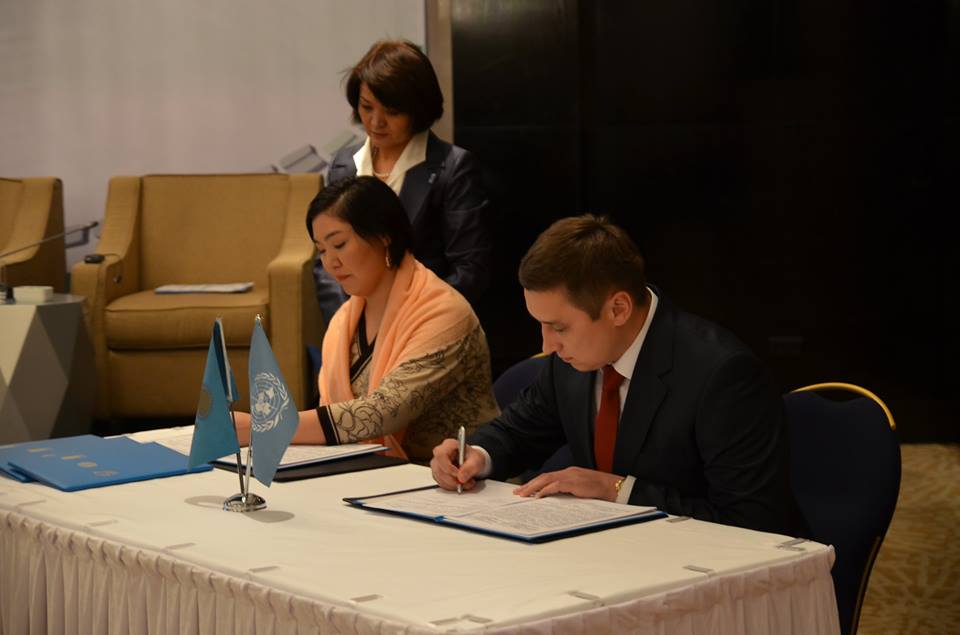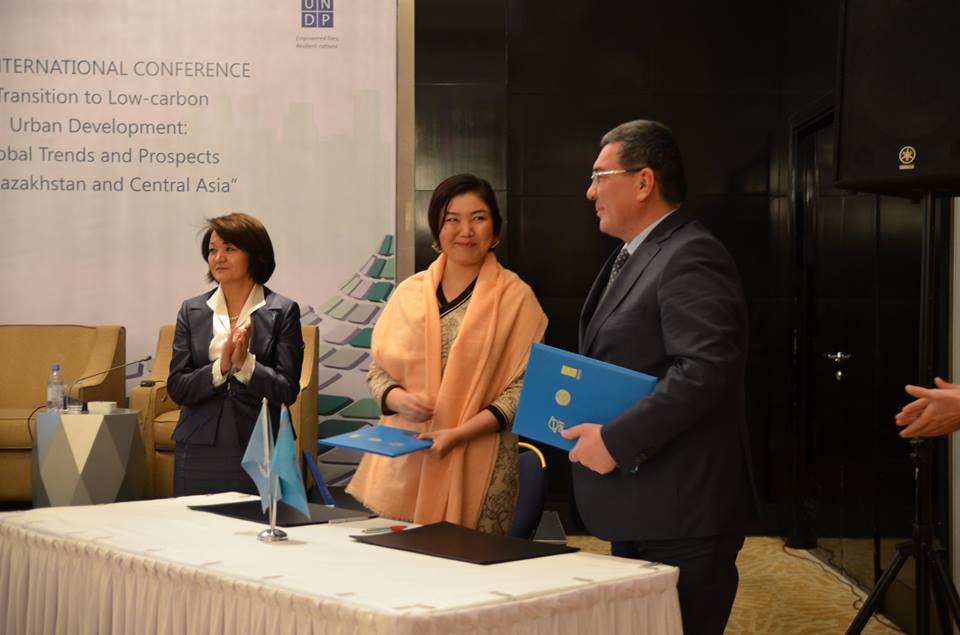ASTANA – The akims (mayors) of Taraz, Shymkent, Temirtau and Lisakovsk cities of Kazakhstan officially signed memoranda of understanding with the UNDP-Global Environmental Facility (GEF) project Nationally Appropriate Mitigation Actions (NAMAs) for Low-Carbon Urban Development at a UNDP-sponsored conference in Astana Nov. 5.
“Sustainable cities means planning, designing and construction with the aim to reduce the impact on the environment, reduce air pollution and reduce greenhouse gas emissions,” said Director of the Energy Conservation Department of the Industrial Committee of Development and Safety of Kazakhstan’s Ministry of Investment and Development Olzhas Alibekov addressing the conference. He also noted that, given low oil prices and the overall challenging economic environment, the timing is especially good for working on a new platform from which to attract new, energy-efficient and environmentally friendly technology to Kazakhstan.
The project, also called the Sustainable Cities Project, aims to collect 11 cities in total for its pilot programme in Kazakhstan and intends to support the cities as they identify, design and implement NAMAs to guide their development. The NAMAs are expected to take the form of investments in infrastructure supported by capacity building, awareness raising and technical assistance, according to the UNDP. The $71.3 million project, financed mostly by the government of Kazakhstan with contributions from the UNDP, GEF and other sources, is to help cities carry out integrated municipal planning, create NAMAs and decide on priorities, create and strengthen local institutions and facilitate financing for urban projects by creating funding mechanisms, according to the UNDP.
The project as a whole will contribute to achieving Kazakhstan’s voluntary target of reducing greenhouse gas (GHG) emissions by 15 percent by 2020, while improving urban services and the quality of life of the country’s citizens as per the Kazakhstan 2050 Strategy.
The project is the first effort in Kazakhstan to adopt a comprehensive approach to reduce GHG emissions in cities, which project organisers note are among the world’s most GHG-intensive.
Alexander Belyi, coordinator of the project, noted that the Sustainable Cities project relates to the objectives of the Nurly Zhol economic stimulus programme, which focuses on infrastructure development as a spur to economic development.
“One of the new challenges of the development of the global community, including Kazakhstan, is to make localities sustainable. According to the current economic conditions, the Sustainable Cities Project is very relevant. On one hand, it will lead to the provision of global environmental benefits, including reducing GHG emissions; on the other hand, it will lead to an increase in the quality of life in cities and, in particular, the quality of services provided in housing, public transport and other spheres of the urban economy,” Belyi told conference participants.
Following the plenary session and the signing ceremony, participants took part in sessions on financing for low-carbon development, best practices in urban sustainability in Central Asia and the world and field visits to low-carbon initiatives around Astana.



